What Are Curb and Gutter | Types of Curb and Gutter| Advantages & Disadvantages of Curb and Gutter
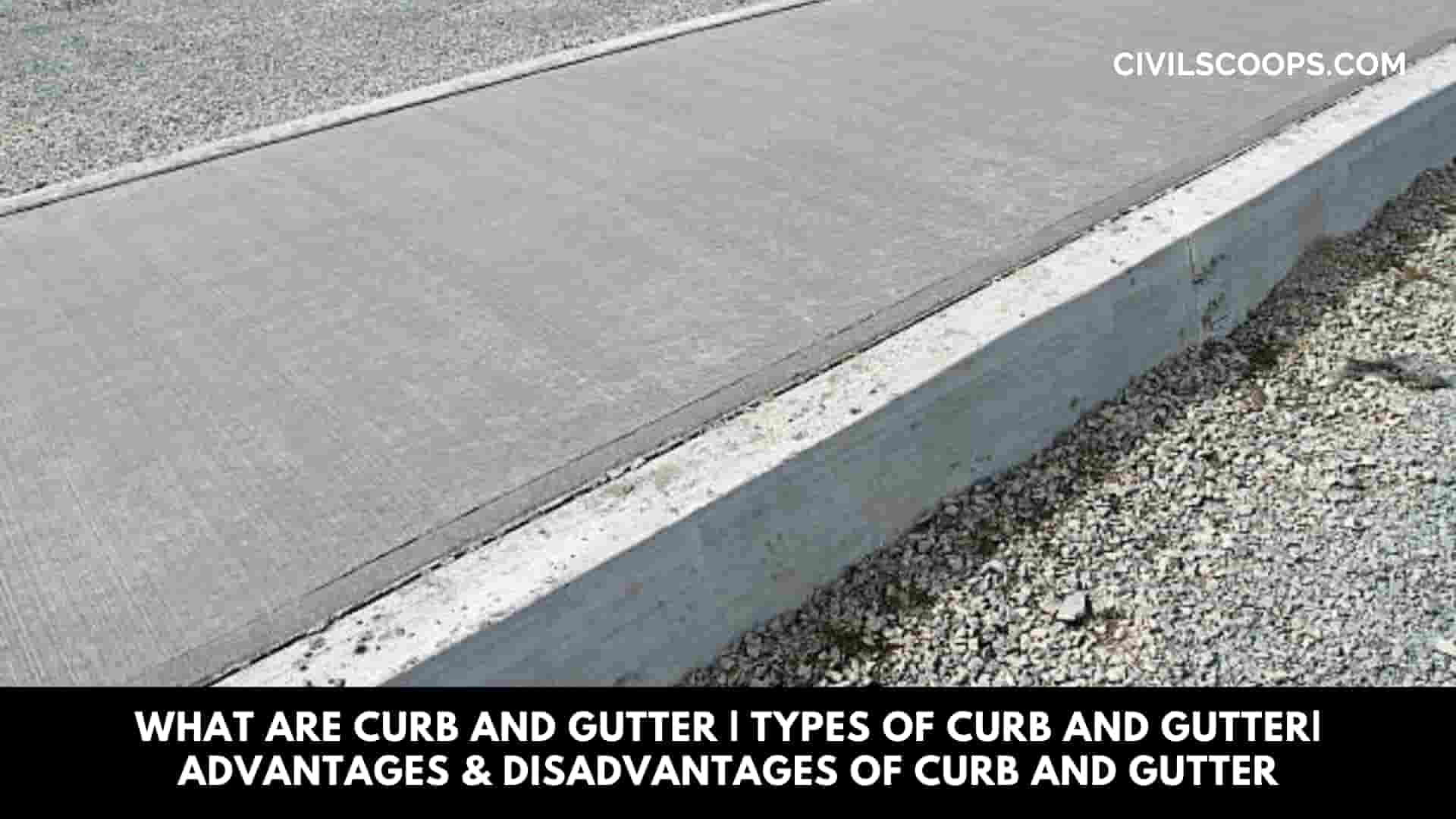
Table of Contents
Introduction of Curb and Gutter
There are various types of Curbs and gutters are used in the construction of light and heavy pavements of the road. The Curb and Gutter are installed along the length of the road. The main purpose of providing a curb and gutter is to strengthen the pavement of the road.
Curb and Gutter are structures that are made from concrete or asphalt which is used to collect the surface runoff water from parking lots or impervious surfaces.
In this article, you will get to know about the Types of Curb and Gutter and the difference between Curb and Gutter, and their Advantages and Disadvantages.
What Are Curb and Gutter?
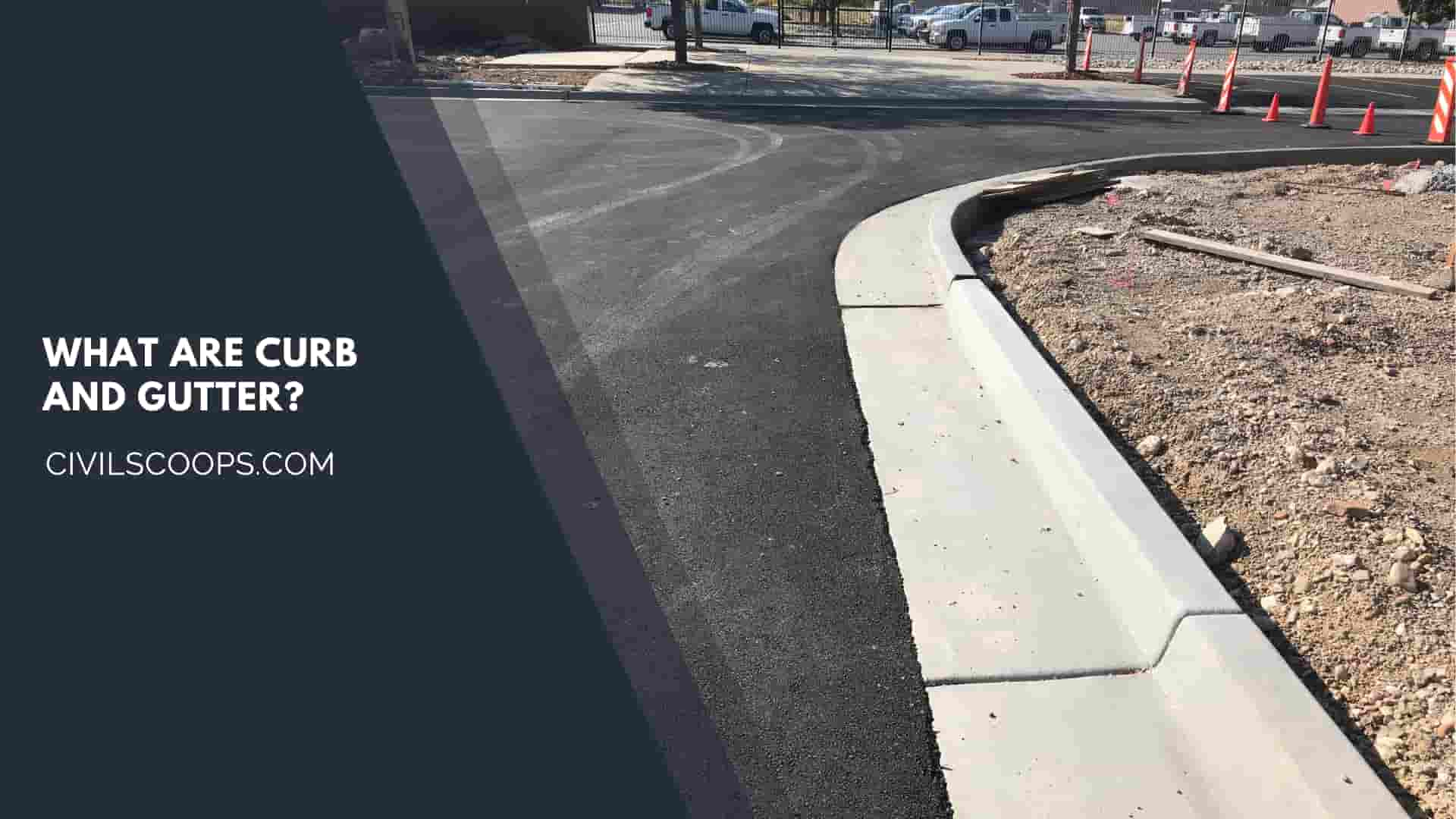
Curb and gutters are concrete or asphalt structures used to collect surface runoff from paved streets, parking lots, or other impervious surfaces and convey it to a storm drain system or appropriate treatment and/or infiltration system. Wherever possible, eliminate or minimize curb and gutter systems.
Also Read: What Is Concrete | 31 Different Types of Concrete
Types of Curb and Gutter
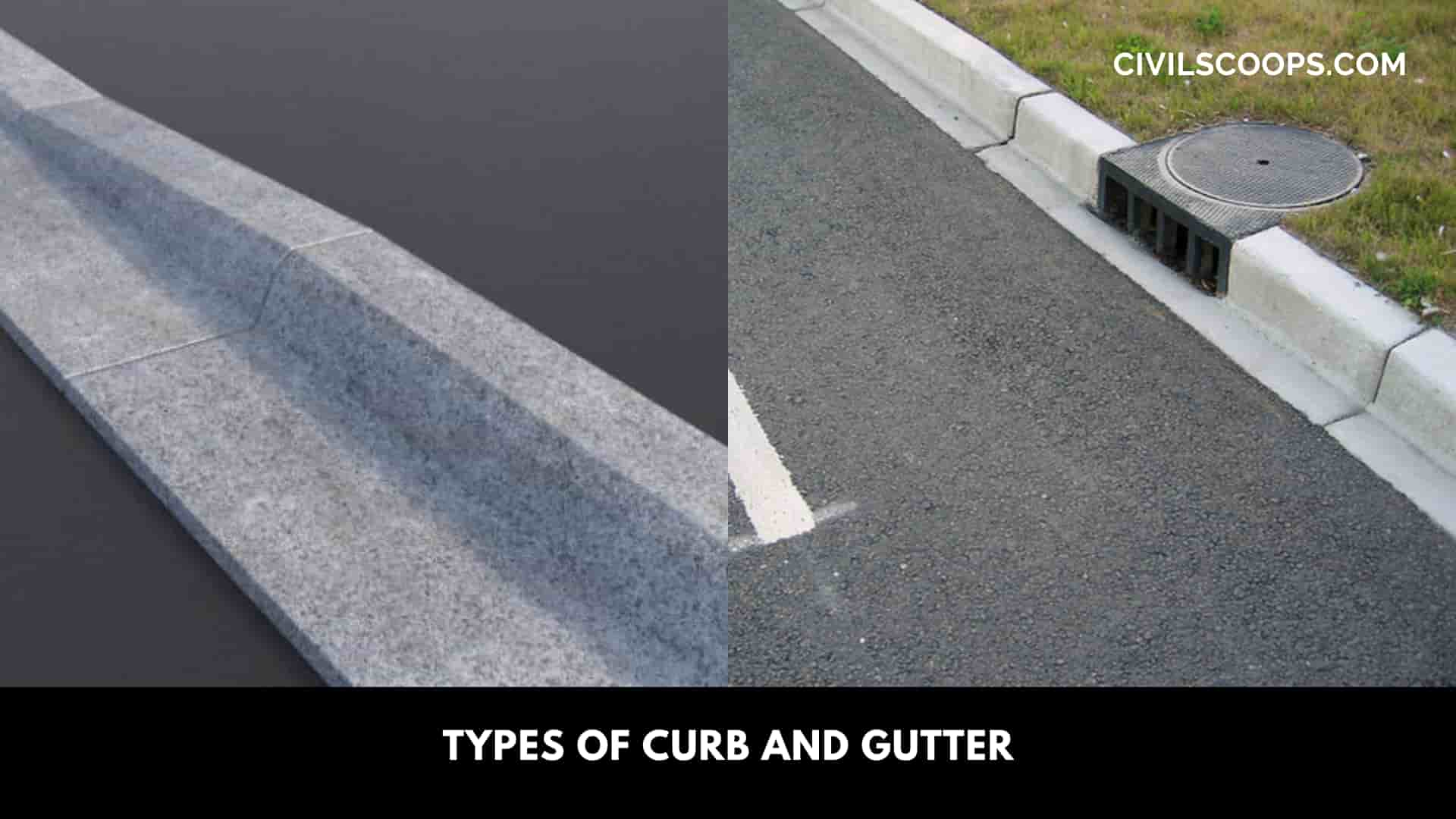
The Curbs and Gutter can be constructed in various shapes and sizes. The curbs are generally classified according to their shape and sizes. The various types of sizes are as follows.
1. Barrier Curb and Gutter
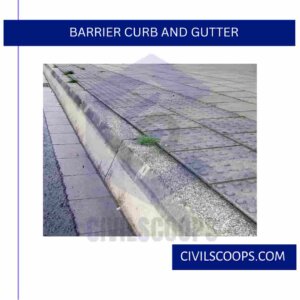
The Barrier Curb and Gutter is one of the commonly used in sidewalks and parking spaces. Its name itself suggests that this is a curb that is constructed to form a barrier in order to separate vehicles and sidewalks or parking lots.
Barrier curbs and gutter are generally made up of cement concrete and asphalt aggregates.
2. Mower Curb and Gutter
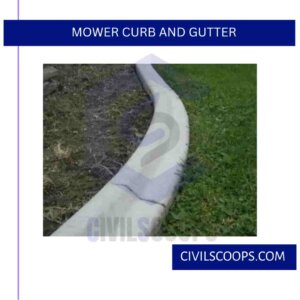
Mower curbs are generally used in the gardens and the areas where lawns for flowering are done. This type of curbs and gutter have a decorative look which provides a strong and protective barrier between the walkway and the green zone.
These types of curbs come with various types of colors and designs and serve as a decorative function.
3. Mountable Curb and Gutter
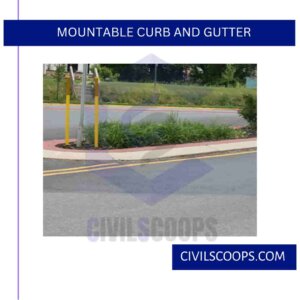
Mountable curbs are the type of curb that has a slight dip on one face of the curb. These types of curbs allow the vehicle to drive easily from the road surface.
4. Slanted Curb and Gutter
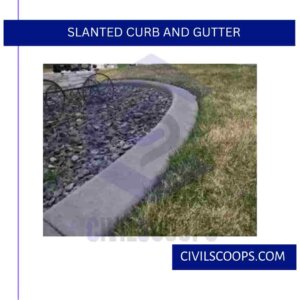
Slanted curbs are usually ornamental curbs and which is generally installed to attract more attention to the structure. Slanted curbs do not have any practical purpose they are only used to enhance Beauty. They are mostly used for decorative purposes.
5. Monolithic Curb and Gutter
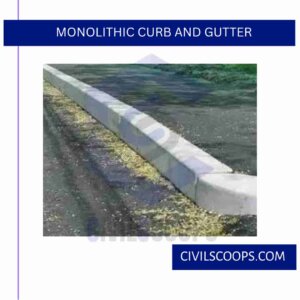
Monolithic curbs are also known as Integral curbs which are designed in such a way that is the joints between the curbs cast onto a concrete slab. The Monolithic curb is connected with the roadway.
Monolithic curbs are the type of curbs that are constructed with the road and the top level of this type of curbs are matched to create more traction. This will make it simple and easy for the vehicles to pass without any damage to the internal structure of the foundation of concrete.
The Monolithic Curbs develop a smooth transition into the road as compared to the other types of curbs.
Curb and Gutter Specifications
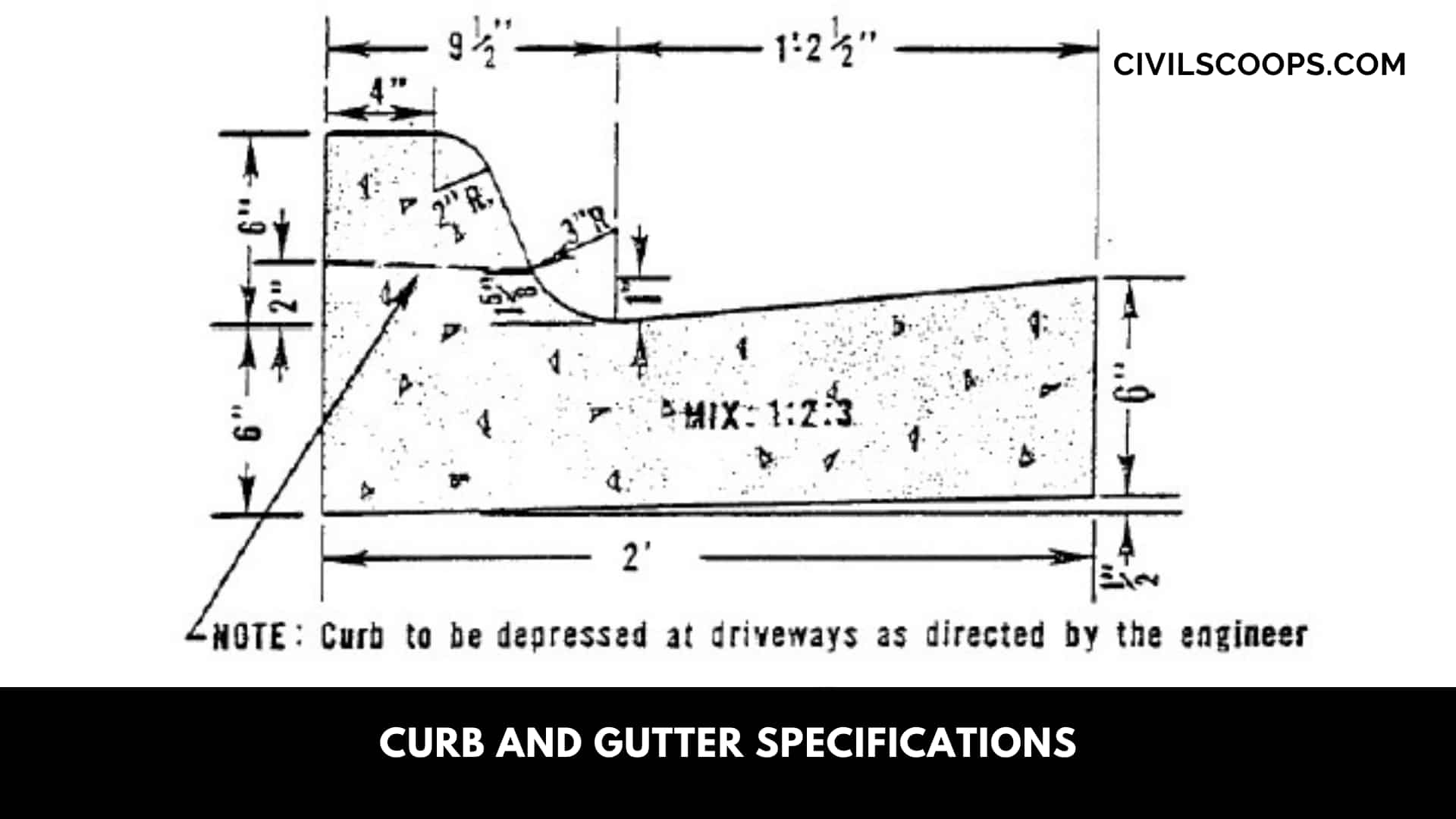
Standard dimensions of the Curb and Gutters are as follows.
1. Vertical Curves Used in Residential Zones
The Vertical curbs which are used in the Residential zones are as follows.
[su_table responsive=”yes” alternate=”no”]
| Gutter width | 18 inches |
| Curb face slope | 12 inches |
| Gutter Thickness | 6 inches |
| Gutter slope to curb face | 1.5 inches |
| Back wall of curb in height | 10 inches |
| Curb face height above flowline | 5 inches |
[/su_table]
2. Rolled Curves Used in Residential Zones
The Rolled curbs which are used in the Residential zones are as follows.
[su_table responsive=”yes” alternate=”no”]
| The back wall of curb in height | 12 inches |
| Curb Top in width | 6 inches |
| Curb face in height | 6 inches |
| Curb face slope in six inches | 0.5 inches |
| Curb face and apron radius | 1 inch |
| Gutter width | 18 inches |
| Gutter Thickness | 6 inches |
| Gutter slope to curb face | 1.5 inches |
[/su_table]
Construction Process of Curb and Gutter
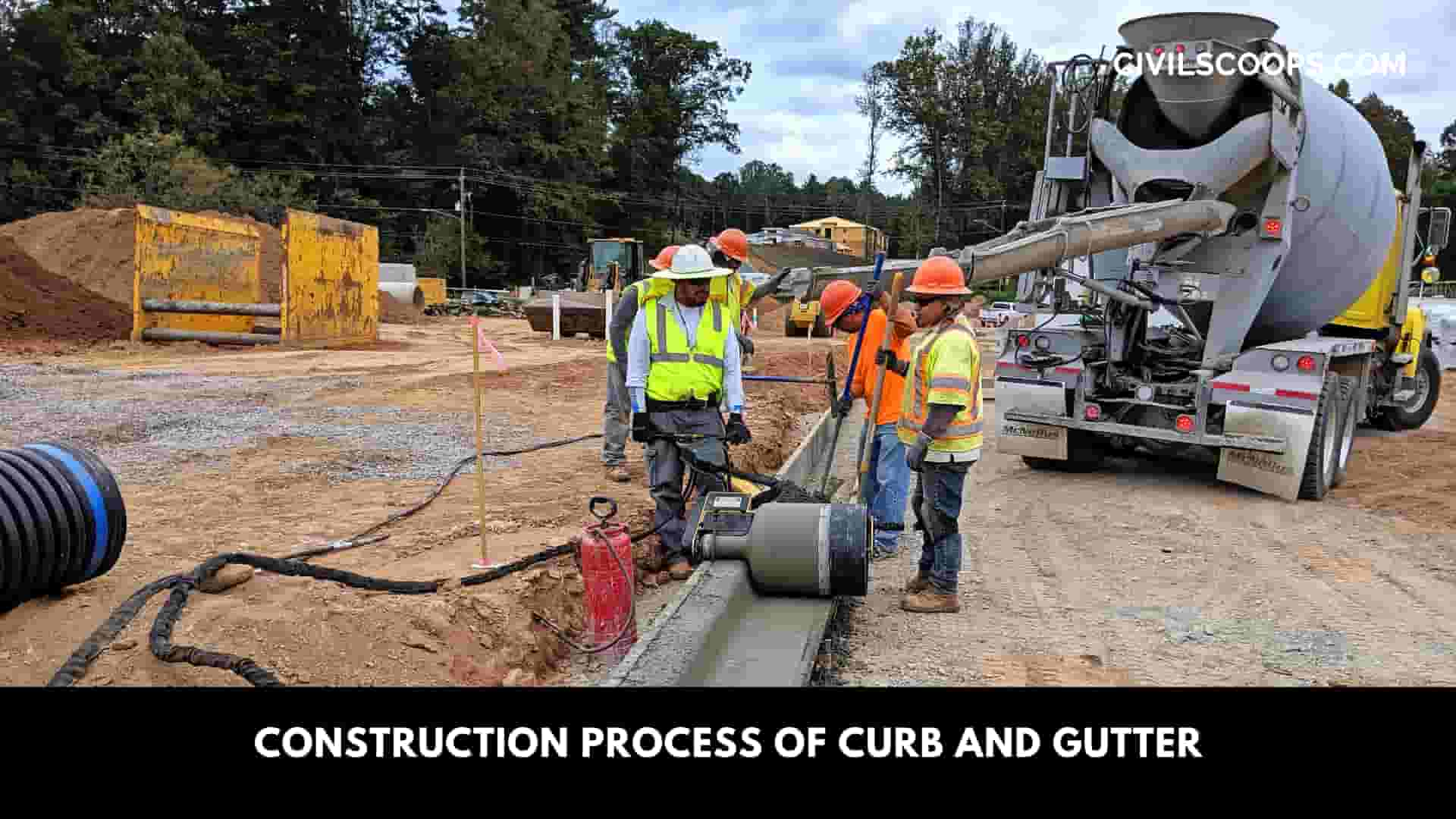
The construction process of curb and gutter are as follows
1. Marking and Excavation
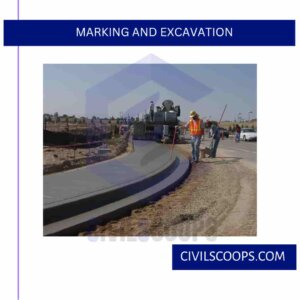
The initial stage before starting any kind of construction is the marking of the foundation of the structure. The area or the path on which the curb and gutter have to be installed should be marked with the help of powder.
The proper gradient is given so that the water should be efficiently drained off. The area which is marked should be excavated.
The excavated soil should be stacked away from the site and all the loose soil and dirt should be removed. The concrete mix should be laid and compacted properly.
2. Formwork
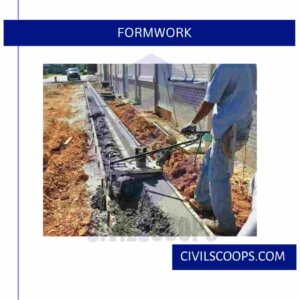
It is necessary that form should be used in the concreting because it helps cast curbs properly. The design of the formwork mainly depends upon the type of curb which is constructed.
The formwork should be installed properly in the alignment and the label should be check with the Plumb.
3. Concreting
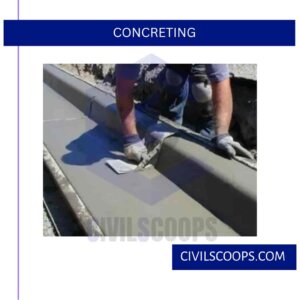
The concrete of the required design mix should be prepared and placed in the formwork. The concrete should be compacted properly and care should be taken that there should not be any voids remain in it.
After the concrete has set and hardened, remove the formwork and scooter on the curb and gutter surfaces. The surface of the curb and gutter should be finished properly with the help of concrete finishing tools.
4. Curing
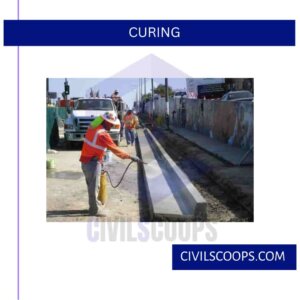
After the concerning curb and gutter and finishing are done, then the curing of the curb should be done to achieve the desired strength and durability. It is necessary that the curb should be prevented from the traffic and extreme hot or cold temperatures.
Advantages of Curb & Gutter
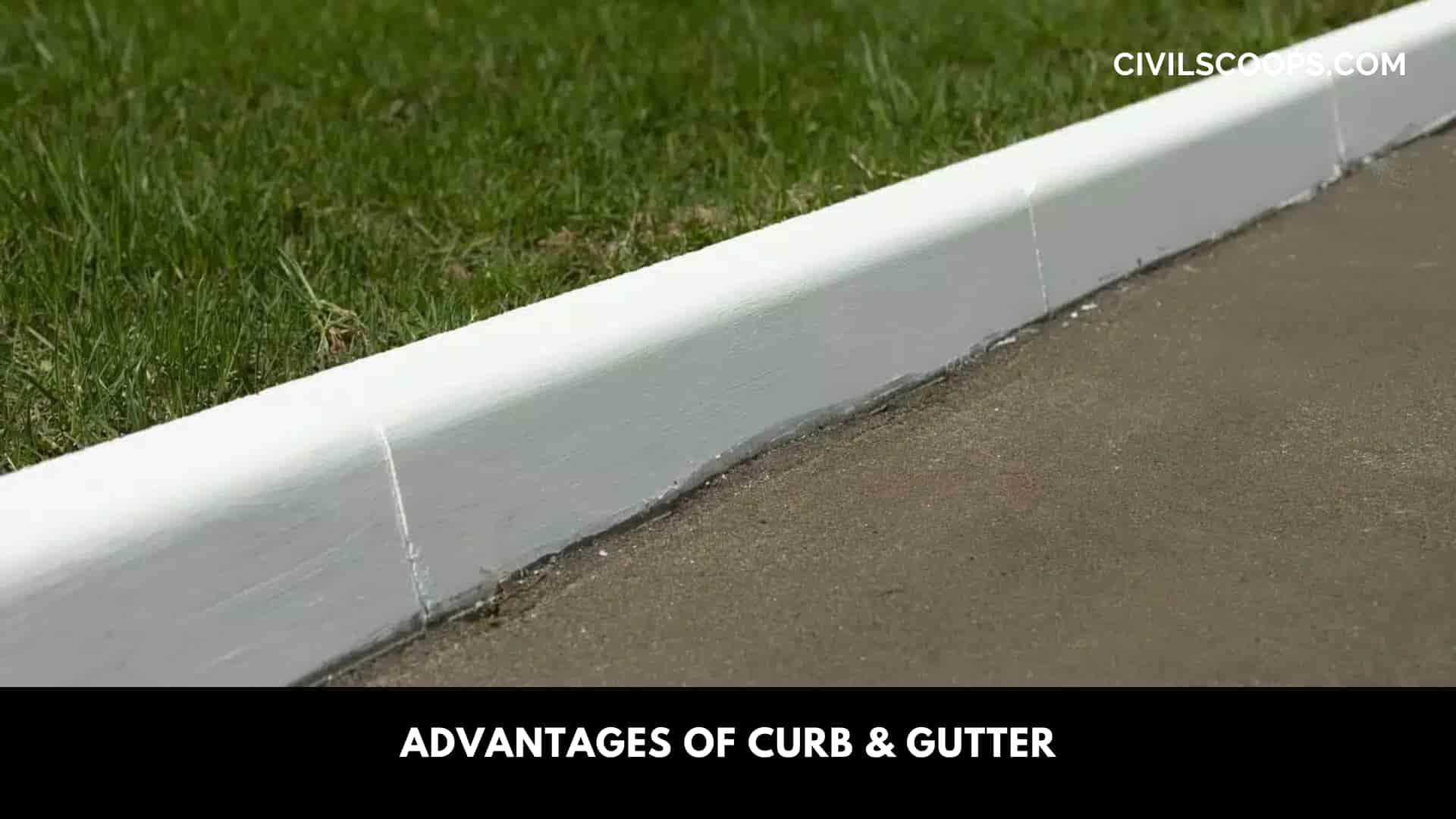
There are various advantages of curb and gutter which are as follows
- The curbs improve the Efficiency of the road sweepers why centering the debris.
- Curbs enhance the Beauty of the parking lots and streets.
- Curbs also act as back support to the pavement of the roads.
- Gutters help in the effective drainage of water which slides down from the surface of the pavement.
- concrete curbs have a reflective surface which helps to improve visibility at night and avoid accidents.
- Curbs form a closed boundary which will help to improve the compaction of the concrete during the construction of the road and helps to maintain the integrity of edges.
Also Read: What Is a Classified Road | Classification of Roads in India
Disadvantages of Curb & Gutter
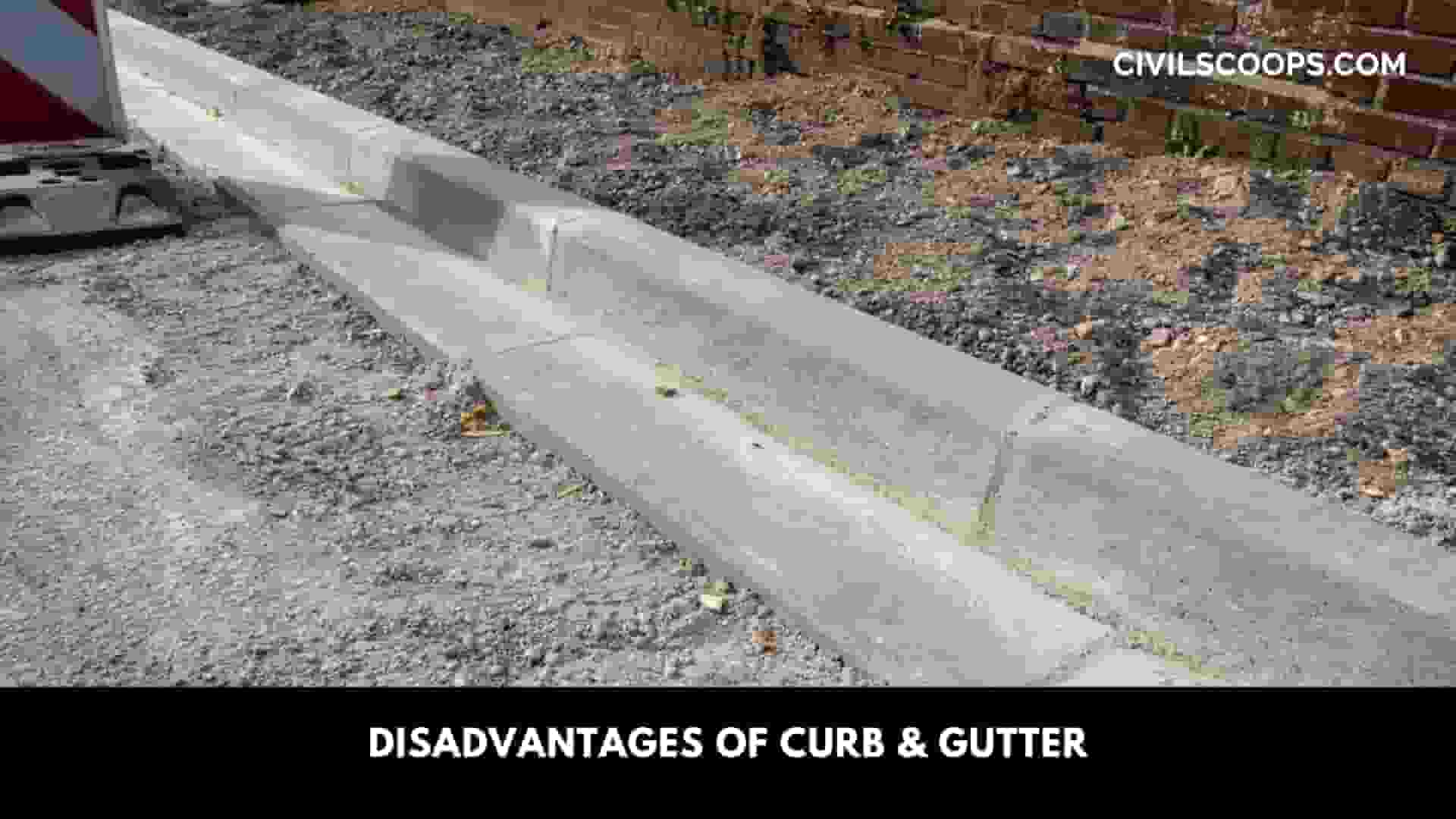
There are also some disadvantages of constructing curb and gutter which are as follows
- The construction of the Curb and gutters required skilled workmanship.
- There are chances that the gets choke up in the Monsoon which may lead to water accumulation on the road surface.
[su_box title=”FAQ” style=”default” box_color=”#333333″ title_color=”#FFFFFF” radius=”3″ class=”” id=””]
What Is Curb and Gutter?
Curb and gutters are concrete or asphalt structures used to collect surface runoff from paved streets, parking lots, or other impervious surfaces and convey it to a storm drain system or appropriate treatment and/or infiltration system.
Types of Curbs
Types of Curbs
- Mountable Curbs. Mountable curbs have a slight dip on one face of the curb so that it facilitates the vehicles to drive over them easily.
- Mower Curbs. Ad.
- Barrier Curbs. This is the most commonly used curb all over the globe.
- Monolithic Curbs.
- Slanted Curbs.
Road Gutters
A street gutter is a depression that runs parallel to a road and is designed to collect rainwater that flows along the street diverting it into a storm drain.
Road Curb
A curb (North American English), or kerb (Commonwealth English except Canada; see spelling differences), is the edge where a raised sidewalk or road median/central reservation meets a street or other roadway.
Average Curb Height
Most curb extends down into the ground below the pavement surface, to improve their stability over time. The total height, including the buried portion, is often 16 in (406 mm).
Barrier Curb
Barrier curbs, also known as straight curbs, resemble the stone slabs used originally for curbs and form abrupt obstacles to vehicles leaving pavements.
Which Type of Gutters Are Best?
The best quality gutters are made from copper. Properly installed and well-maintained copper gutters can last 50–100 years or longer. However, aluminum gutters may be a more cost-effective option. Many people find that aluminum gutters strike the right balance between price and performance.
Curb and Gutter
Together, the curb and gutter system plays an important role in managing stormwater runoff, directing it into drainage systems, and protecting the integrity of road surfaces and adjacent areas. They also provide a clear separation between vehicle traffic and pedestrian areas, enhancing safety for pedestrians. Additionally, curbs may serve as a guide for parking and traffic control, providing a visual reference for drivers and defining parking spaces along the road.
Curb and Gutter Cost Per Foot
The national average materials cost to install concrete curb and gutter is $6.13 per linear foot, with a range between $5.72 to $6.55.
Types of Gutter
There are 3 main styles of gutters: K-Style, Half-Round, and Box gutters. Each of these styles are available in a variety of materials, such as Aluminum, Copper, Vinyl, and Galvanized Steel.
[/su_box]
[su_note note_color=”#F2F2F2 ” text_color=”#333333″ radius=”3″ class=”” id=””]
Like this post? Share it with your friends!
Suggested Read –
- Why Hairline Cracks in Concrete | Types of Cracks in Concrete
- What Is Brutalist Architecture | Brutalist Design | Brutalism Architects Buildings & Houses | What Is Neo-Brutalism
- Functions of Foundation | Requirements of Good Foundation | Types of Foundation | Types of Shallow Foundations | Types of Deep Foundations
- Introduction of Bamboo | Advantages & Disadvantages of Bamboo | Bamboo Uses in Construction | Properties of Bamboo as a Construction Material | Bamboo Architecture
- 9 Curing of Concrete Methods | What Is Curing of Concrete | Why Curing Is Important | Minimum Curing Period for Concrete Cement | How Long Does It Take for Concrete to Dry
[/su_note]
Originally posted 2023-05-25 08:00:19.
